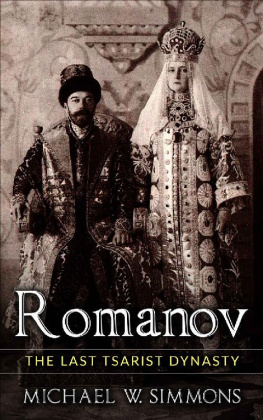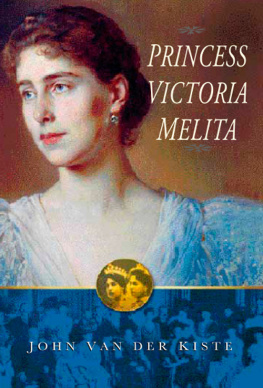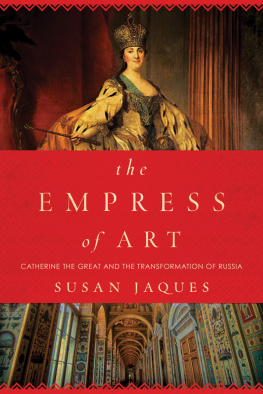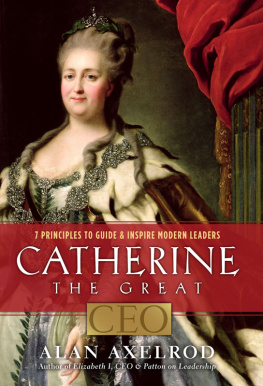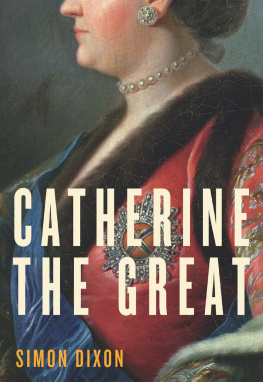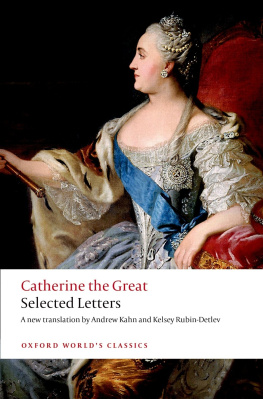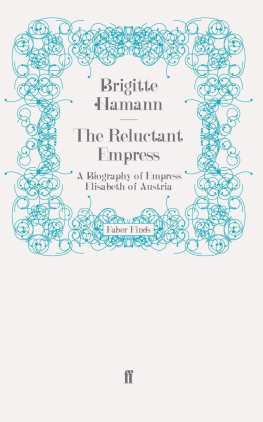Catherine the Great
Last Empress of Russia
By Michael W. Simmons
Copyright 2016 by Make Profits Easy LLC
profitsdaily123@aol.com
Table of Contents
Chapter One: Princess Sophie
Fortune is not as blind as people imagine. It is often the result of a series of precise and well-chosen steps that precede events and are not perceived by the common herd. In people it is also more specifically the result of qualities, of character, and of personal conduct. To make this more concrete, I will make the following syllogism of it: Qualities and character will be the major premise. Conduct, the minor. Fortune or misfortune, the conclusion.
preface to the memoirs of Catherine II of Russia
Birth and childhood
On November 8, 1727, at the age of 38, Prince Christian August of Anhalt-Zerbst was married to Princess Johanna Elizabeth of Holstein-Gottorp, who was 15. Despite his rank and title, Christian August was not exceptionally wealthy, nor was he fashionable or powerful; he was just one of many minor princes who ruled the many minor principalities and territories that would, some hundred years in the future, become united under the Prussian king Wilhelm I to form the German empire. Christian August served the present king of Prussia, Frederick the Great, as a military officer, and his military career was the most distinguished thing about him, apart from his strict Lutheran religious principles. He was not well-acquainted with Johanna before her marriage. Like most wealthy minor noblemen, he married simply to produce an heir. He was fortunate to claim a daughter of the Holstein-Gottorp family, whose far-flung relations and family connections included the Russian royal family, but he was not fated to be happy with his new wife.
Johanna Elizabeth found herself disappointed in the match that had been arranged for her, and by the unambitious mode of living that Christian August insisted upon. Shortly after their marriage, they moved to Stettin, where Christian August had been awarded the command of a regiment. It was a boring little town on the Bay of Pomerania, in what is now Poland, and the social life of its upper-class inhabitants revolved around dull military-oriented functions. Johanna had been raised by her godmother, the Duchess of Brunswick, at her court in northern Germany, where clothes were always in fashion, and gossip was always fresh; Christian Augusts modest and strict way of life was boring, repressive, and incomprehensible to his teenaged wife.
Princess Johanna gave birth to the couples first child on May 2, 1729, about a year and a half after her marriage, when she was only sixteen. She was expecting a son, and the appearance of her daughter came as a profound disappointment. Johanna named the baby girl Sophia Fredericka August, and immediately lost all interest in her. The infant was given over to the care of a French Huguenot woman named Elisabeth Cardel, who had fled to Germany in search of more tolerant religious climes, and gained employment in the Anhalt-Zerbst family as a governess. Cardel, known as Babette to her charge, was to supervise the young princesss education until her marriage. She is credited with instilling the intellectual habits for which the Empress Catherine would become famous.
Despite her disappointment at not having given birth to a son, Johanna was determined that her daughter would serve her ambitions to the extent possible, namely by making the illustrious marriage that she herself had failed to make. Despite Christian Augusts modest standards of living, Princess Johanna gave the young Sophie the education and social graces that would prepare her for life at any of the royal courts in Europe. Sophie was a clever child, and she took eagerly to the lessons taught by Babette and her tutor. She received instruction in etiquette and protocol, music, dancing, horseback riding, geography, history, and religion. She was clever enough to baffle and frustrate the Lutheran pastor her father employed to teach her these latter three subjects, particularly when it came to religion. She could not understand how God could allow for people to be condemned to hell who had lived and died prior to the birth of Christ, or how a supposedly loving and benevolent God could destroy the world in fire as it was prophesied in the Bible. Her tutor, unequipped to deal with such probing, precocious questions, threatened to beat her as punishment, and would have done so without the intervention of Babette.
While her governess was understanding of the child Sophies intellectual curiosity, her mother was not. Princess Sophies future career depended on her mothers ability to mold her flawlessly into the ideal princess-in-waiting, and too much independence of spirit could only interfere with that goal. Furthermore, Princess Johanna had never been fond of her, and the gulf between mother and daughter only widened when Sophies brother, Wilhelm Christian, who was younger than her by about a year, died at the age of twelve. Johanna vented her feelings of loss, frustration, and annoyance by repeatedly telling Sophie that she was ugly and unattractive, and by forcing her to keep silent and debase herself in displays of humility whenever visitors arrived. Perhaps Sophies most remarkable trait was her ability to control her anger and pride and comply with her mothers domineering demands. These lessons would stand Sophie in excellent stead when she traveled to the Russian court of Empress Elizabeth I, another domineering woman who, for years, would control her life completely.
The young princess
Princess Johanna, having married slightly beneath her, might easily have lost touch with her powerful and royally-connected friends from childhood; but she knew that her marital aspirations for her daughter depended on cultivating those attachments, so she returned yearly to the court of Brunswick, taking Sophie with her once she was old enough for the journey. Marriages amongst the aristocracy were often arranged while one or both parties were still small children, so it suited the elder princesss purposes to display her little daughter, with her all her education and accomplishments, to her friends who might have sons of their own to marry off. Sophie had been told so often that there was nothing attractive about her appearance that she forced herself to work all the harder at attracting people with her personal virtues, like modesty, patience, kindness, intelligence, and learning. She was a willing partner in her mothers efforts to find her an illustrious husband. She had witnessed firsthand the fates of women of her social rank who did not marry, in the persons of her mothers sisters, old maids who were cloistered together or shut away in the draftiest and oldest parts of their familys ancient castles. She had no desire to end up in the same condition.
It was on one of these visits to Johannas relations that the young Princess Sophie first met her uncles ward, Charles Peter Ulrich, the Duke of Holstein. Charles Peter was 11, only a year older than Sophie; he also happened to be the heir to the Swedish throne, as well as the only living grandson of Peter I of Russia, known to history as Peter the Great. Upon the death of Charles Peters parents, he had been sent to live with Johannas brother; by blood, he was Sophies second cousin. He was not an especially prepossessing boy. As a pre-teen, he was already given to drunkenness and over-indulging at mealtimes, and unlike his intellectual cousin, he cared little for reading or the lessons of his tutors. But he accepted Sophie as a playmate, and this mark of favor was readily noticed by Johanna.
Later in life, as the Empress Catherine II, she recorded her recollections of young Charles Peter in her memoirs:
I saw Peter III for the first time when he was eleven years old, in Eutin at the home of his guardian, the Prince Bishop of Lbeck I was ten years old at the time. It was then that I heard it said among this assembled family that the young duke was inclined to drink, that his attendants found it difficult to prevent him from getting drunk at meals, that he was restive and hotheaded and did not like his attendants and especially Brmmer, and that otherwise he showed vivacity, but had a delicate and sickly appearance. In truth, his face was pale in color and he seemed to be thin and of a delicate constitution. His attendants wanted to give this child the appearance of a mature man, and to this end they hampered and restrained him, which could only inculcate falseness in his conduct as well as his character.
Next page

